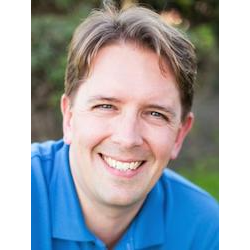
UC San Diego Computer Science and Engineering (CSE) Professor Steven Swanson is building computer systems that explore how new memory technologies will impact the future of computing.
In recognition of his impressive body of research to create software to support persistent memory, Swanson was recently named the inaugural holder of the Halıcıoğlu Chair in Memory Systems at UC San Diego. The $1 million chair is part of a larger $18.5 million gift made in 2013 to the department by CSE alumnus Taner Halıcıoğlu ’96.
The chair provides a dedicated source of funds, in perpetuity, for the chair holder’s scholarly activities as well as support for graduate students.
“In the face of the COVID-19 pandemic, Professor Swanson’s work is more important than ever before,” said UC San Diego Chancellor Pradeep K. Khosla. “His research, teaching and mentorship not only push the boundaries of human understanding, they inspire our academic community to continue innovating, experimenting and discovering. These efforts are critical to our mission as a public research university.”
The chair is named after Halıcıoğlu, who was Facebook’s first full-time employee when it had only 15 computer servers and 250,000 users. Now he spurs startups in San Diego as an angel investor and is also a lecturer in the computer science department. He’s been recognized as a 2020 CSE Distinguished Alumnus, a 2019 Chancellor’s Medalist and a UC San Diego 2019 Outstanding Alumnus.
“Taner’s incredible generosity and support of innovation and the work of Steven Swanson will impact our department, our university and our world for years to come,” said CSE Department Chair Sorin Lerner.
“Endowed chairs give faculty members the freedom to pursue revolutionary ideas, inspire the next generation of innovators, and transform our society in fundamental ways,” Swanson said. “I am privileged to be able further this kind of work at UC San Diego and CSE.”
Impacting the Future of Computing
Swanson is the director of the UC San Diego Non-Volatile Systems Laboratory, where his group
builds computer systems to explore how new memory technologies will impact the future of computing, with a focus on non-volatile memories that allow programmers to build long-lived data structures that can survive system crashes and power failures.
“This requires the data structures to be extremely robust, but that is hard because systems can fail in so many different ways,” he said.
Their recent research has made it easier for programmers to build these robust data structures. “Rather than relying on the programmer to get it right, we have built a compiler that automatically checks for the properties these data structures need. This means less testing, fewer bugs and better reliability,” he said.
Swanson has also been working with colleagues to develop a new course and lab (CSE142 and CSE142L) that teach students how to fully utilize the powerful features that modern processors provide.
“Based on our experience of what really matters to software developers, we take the students on a ‘grand tour’ of modern CPUs and then have them apply what they’ve learned to optimize machine learning workloads,” he said.
Halıcıoğlu’s gift has also created the Halicioğlu Chair in Computer Architecture at UC San Diego, which is held by CSE Professor Hadi Esmaeilzadeh, and the Ronald L. Graham Chair of Computer Science held by CSE Professor Ravi Ramamoorthi.

